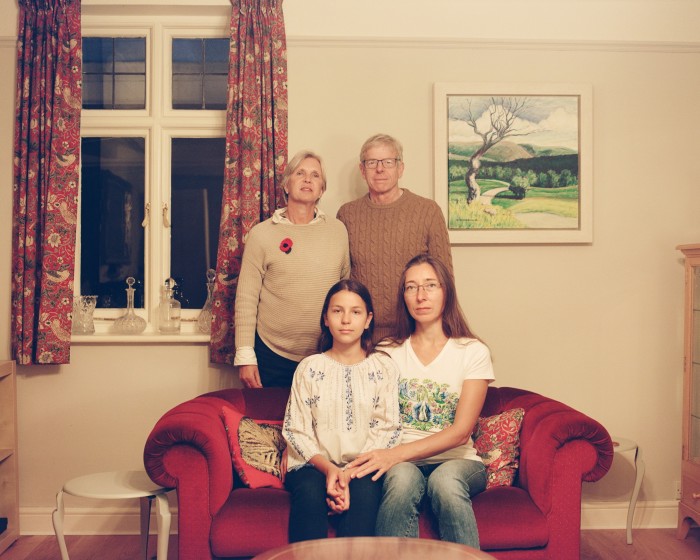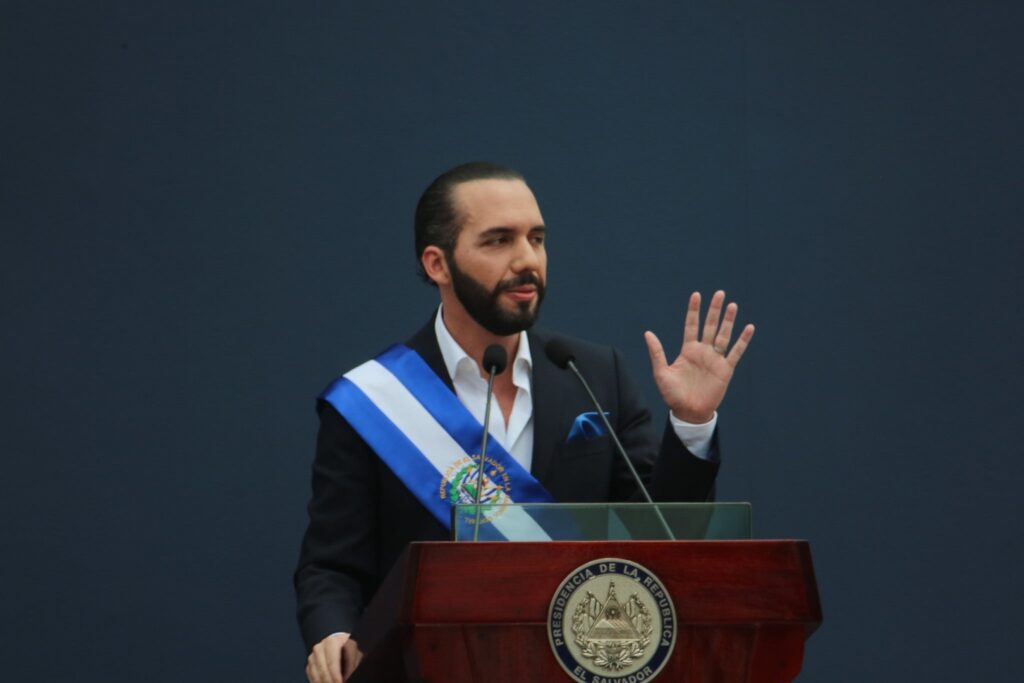What happens next to Britain’s Ukrainian refugees?

“I want to thank you for what you’ve done,” says 16-year-old Kostya* haltingly, his light brown eyes intense under his baseball cap. “In Russian I could say so much more, but in English I can say only ‘thank you’, and it’s not enough.”
I am floored: this is my first meeting with this boy who until now has been just a name on email, a mission to be accomplished. Kostya’s six-month journey from Ukraine is a story of one teenager’s determination to get to England. It’s also a story about the remarkable set of individuals, families, teachers and institutions that have pitched in to help him and 142,000 other Ukrainians who’ve fled the war to the UK; and of the many challenges they still face, not least in avoiding homelessness.
I am sitting in a café by the Thames with Kostya and his sponsor, Christopher Rossbach, a fund manager who has two young sons of his own and who applied to bring Kostya to the UK under the government’s Homes for Ukraine scheme. More than 150,000 people signed up within days of the scheme’s launch in March, an outpouring of generosity from every corner of the country. But, as the war drags on, and the original six-month period for hosting now at an end in many cases, there are big questions about what will happen next.
Kostya’s journey began a few days after the war broke out, when he set out alone from his home city of Mykolayiv in southern Ukraine, with a phone and a rucksack, and crossed into Poland. The first refugee camp turned him back, saying he was too young. But he soon tried again, telling his mother — who serves with his father in the Ukraine military — that he hoped to reach an old classmate who was studying in Berlin.
Kostya won’t say exactly how he got to Germany, but he’s clearly a resourceful kid, though his thin arms and the cartoon character on his faded T-shirt make him look terribly young. He talks breezily about breaking the curfew in a German hostel to visit the Baltic Sea (“I wanted to see the coast”). But when he describes arriving at Berlin train station, his sangfroid slips. “There were so many homeless,” he says, “cigarette butts on the floor — it was a dirty place.” He was put into a hostel where “I was the only Ukrainian guy in a very big building. Most were Arabic, not speaking English or German, so I had no one to talk to.”
He was not entirely alone, however. He shows me the Telegram app on his very battered phone, where he keeps in touch with friends who “are all over the world now. There are none left in Mykolayiv.” According to the UN, most refugees from Ukraine have sought safety in nearby European countries, with the greatest numbers ending up in Poland (1.47mn), Germany (815,000) and the Czech Republic (456,000).
Meanwhile in London, Rossbach, a stranger who’d been contacted by Kostya’s parents through a mutual friend, was fighting the Home Office to get him a visa, and trying to get him some education. Rossbach, a German-American, arranged for Kostya to get two weeks of English lessons at the Salem International Summer School in Überlingen, where his own son had studied. The headteacher was oversubscribed, but “she said OK, we’ll just turn a double into a triple”, Rossbach recalls. Kostya becomes briefly emotional, remembering a teacher at Salem who gave him a pencil case. “She was so kind, I had no pens or pencils, she gave me this present and I wanted to cry.”
The missing piece was the visa. The Rossbachs’ local council, Hammersmith & Fulham, was “excellent”; the Disclosure and Barring Service criminal record checks were all in place and Chris had even found Kostya a place at an English boarding school, funded by a charity. But every time he rang the government helpline, the answer was the same: “They had no information to provide, and there was no other way to get information.” The contrast with the German authorities was striking. “In Berlin, Kostya had an actual person responsible for him,” Rossbach says. “In London, there was no one who seemed able to take proactive decisions.”
In July, Rossbach got in touch with me via a mutual friend. Through Whitehall contacts I found a tenacious civil servant who eventually broke the impasse in September — but only after we had told everyone we could find that this boy’s parents were not always easy to contact because they are both in the military, and that he had a place at an English school where term was about to start. At last, on September 2, I received an email telling me the visa was being issued imminently. It didn’t arrive. Luckily, a kind official who clearly didn’t trust the system had given me his mobile number. After more nail-biting to-and-fro, Kostya finally arrived on September 8 — with a guitar he had hauled around through thick and thin.

I have since interviewed many hosts who gave me similar accounts: that things worked well locally, but nationally no one told them anything. Unaccompanied minors like Kostya have had particular difficulties — I was later told by a Whitehall source that this was partly because the government in Kyiv changed its mind several times on whether they should be allowed to travel at all.
While the central bureaucracy struggled, individuals sprang into action with astounding speed and generosity. One was Yegor Lanovenko, who graduated from Bristol university in 2014 and now works for a big City firm. The day war broke out, his mother was in Odesa and his phone started beeping with messages from people caught up in the crisis. He realised that thousands of refugees were likely to head to the UK and immediately set about registering a charity, Opora (meaning “support”), with the thought that a network would be needed to help people rebuild their lives.
When the Homes for Ukraine scheme was announced, Lanovenko was “appalled” when he read guidance that people wanting to sponsor refugees should “find them on social media”. He worried that “thousands of vulnerable individuals might be at risk” — and there have since been stories about men preying on young women. Within 48 hours, Opora had launched an online platform to help Ukrainians and sponsors find each other safely. “I put out a post saying we need people who can design social media platforms,” Lanovenko says. “Within hours I was getting messages saying ‘I can help’. Brilliant lawyers helped us, pro bono, with all the terms and data privacy.” He says the Opora platform gained more than 2,000 users within 24 hours of launching, and is now also offering business grants.
Over in west London, a different challenge was becoming visible. “I remember the day when the first 17 children came to our door,” says Inna Hryhorovych, director of St Mary’s Ukrainian School in Holland Park. “I still get a shiver thinking about it.”

In February, Hryhorovych was running St Mary’s long-established Saturday school for about 200 Ukrainian children in London. By September, she was catering for 700. “Those first arrivals were from Donetsk, a region hit by heavy shelling,” she says. “The staff just added them to the class, we gave them a hot meal of Ukrainian dumplings and we saw the shock on their faces — ‘You have these here?’ Then they started grinning. Our environment smells like home and sounds like home.”
Over the next two months, St Mary’s received more and more visitors. “On one Saturday, there were 70 new joiners with confused mothers. We couldn’t say no. Some had nowhere to spend the night.” This summer, Hryhorovych started a holiday camp for 2,000 Ukrainian children, in buildings offered by local schools. Out of 82 members of staff on the summer camp, 75 per cent were displaced teachers from Ukraine. “For those teachers, mostly women, it was a way out of depression, a realisation that they can be useful even away from home,” she says. “I’m very proud of that.”
Meanwhile, tens of thousands of Brits with no connection to Ukraine were welcoming strangers into their homes. In East Yorkshire, Peter Dear, 63, is hosting Zoriana and her two daughters Diana (11) and Yana (nine). “We’ve had a few issues,” he chuckles. “They like beetroot — and when these guys cook, they boil for hours. But now Zoriana’s even learnt to make Yorkshire pudding.”
The family occupies the top-floor bedrooms of Dear’s two grown-up children. His partner was less comfortable with the arrangement, and has moved out. “There was a doubt in her mind about were these real refugees? Whether people from the west of Ukraine were really in danger. I told her they’re fleeing a war.”

Is the £350 a month, paid by the government to Homes for Ukraine hosts, enough? “Nowhere near, but the mum has personal pride, I’m an ex-serviceman on a fixed income and I set their expectations before they came. I said ‘You will need to contribute, there’s three of you and one of me.’ We shop together. We’re very careful what we buy.”
Like many hosts I have spoken to, Dear says the experience has transformed his life. “I’m 63 now, my legacy is my son and daughter, but with these guys . . . I’ll be here for them as long as they need me.”
Others are less sure. A recent ONS survey found 25 per cent of sponsors saying they only wanted to provide accommodation for six months, which was the government’s original minimum request. The first refugees who arrived in March have already passed that mark. I spoke to one woman who spends her evenings upstairs in her bedroom while her guests dominate the dining room (“I think I was too welcoming”), another whose guests are seriously traumatised by the war, and another whose guest, a young man, is being shunned by fellow refugees who think he should go back and fight.
“I think a lot of sponsors made the mistake of trying to take over, they insisted on doing all the shopping and cooking at the beginning, and now it is wearing thin,” says Katherine Temple*, who has taken a mother and two daughters into her home in Norwich. Their arrangement has worked, she says, “because I did a lot of research and knew what we could handle”.
She and her husband, who is retired, knew how to set boundaries because they used to take in language students. Her guests make their own breakfast and lunch but they alternate cooking dinner, which is “fantastic”. “My husband is a very quiet man, but the other day he said ‘I’m going to miss them so much when they go,’” Temple says. “He adores the 10-year-old. She even cooked him dinner when he wasn’t well.”

Temple is in touch with other sponsors and says some are exhausted. Official data shows that relatively wealthy counties such as Buckinghamshire and Wiltshire have the greatest number of hosts, but there are many hosts in areas that are less affluent. The Local Government Association (LGA), which represents local councils, is concerned that growing numbers of Ukrainians could soon become homeless. The number of refugee households at risk of homelessness jumped 22 per cent between August and September, from 1,565 to 1,915, and another 14 per cent in October. Of those, 70 per cent had dependent children.
James Jamieson, chair of the LGA, thinks that the monthly payment should increase to counter rising living costs. “Lots of hosts have been very generous,” he says. “But it’s costing them money. The data says that 75 per cent of sponsors are willing to carry on, but anecdotally that number is going down.”
Jamieson says that most of the Ukrainians now approaching council homelessness services arrived under the Family Scheme, which lets those with relatives in Britain obtain a visa, but provides no financial support. If a relative can no longer house them, Jamieson thinks, these people should be allowed to seek a sponsor.
Things suddenly felt very raw last week, as arguments flared over the increasing number of migrants crossing the Channel to get to England and the overcrowding at Manston migrant processing centre in Kent. While the UK’s prime minister Rishi Sunak held urgent talks with Emmanuel Macron of France to try to reduce Channel crossings, seven Ukrainian families were reported to have been ousted from a hotel in Yorkshire to make room for migrants from Manston. This was a stark reminder of the limited resources that local councils have — and of the heartbreaking decisions countries make about who to prioritise.
In showing a warm welcome to Ukrainians while repelling migrants from further afield, the UK and other European countries have been accused of double standards. The contrast feels especially stark with the experience of many Afghans who came to the UK after fleeing Taliban rule, an estimated 10,000 of whom are still living in hotels. According to the Migration Observatory at Oxford university, the UK has protected more people under its two Ukraine schemes in six months than it did under asylum and refugee resettlement routes between 2016 and 2021.
Ukrainians fleeing the war are not defined as refugees — the government in Kyiv has insisted they be called “temporarily displaced”. Unlike asylum-seekers, they are not eligible for permanent residency, and it may be that few want it: 81 per cent of this year’s arrivals are women, many with men back home they are desperate to return to.
What might be learnt from Homes for Ukraine? Despite its teething troubles, it feels like an innovative policy that has forged new links between two countries and eased the burden on the state — not least by letting Ukrainians seek work from the minute they arrive. “For once we took a pragmatic rather than perfect attitude,” says Jamieson of the LGA. “This should be a blueprint for the future,” he thinks, not least because it overcame departmental silos in Whitehall. On refugee policy, Jamieson says, “different departments are all trying to do the right thing, but not necessarily the same thing”.
As the government contorts itself over the Channel crossings, however, there is little sign of decisions being taken about what the next phase of Homes for Ukraine should look like. The government told me it has no plan to increase the monthly thank-you payment to hosts, although it points out that councils get £10,500 per person to cover extra costs.
Accommodation is a central challenge. Where should we house refugees, and for how long? The more Ukrainians who find private rental accommodation, the more hosts can get back to their normal lives — or help others. Yet Iryna Marciuk, a lawyer who, with her English husband, recently hosted a young couple under Homes for Ukraine, says that they were only able to move out because she became the guarantor for their rental flat. “The Homes for Ukraine scheme was set up for six months, but what happens afterwards hasn’t been thought through,” she says.
“Here in London, we see how difficult it is to find rental accommodation. If the government stepped in and acted as guarantor, I’m sure that would take a huge burden off everyone, including landlords who want to help,” says Marciuk. Isn’t that a risk for the taxpayer, I ask. “Yes, but government can calculate the risk,” she says briskly. “What do you do if they all end up on the street?”
At a time when so much news is negative, the solidarity with Ukraine is heartwarming. None of the people I interviewed for this article wanted praise for their actions. As one said: “We’re not doing anything special. We’d hope someone else would do the same for us.”
Back at the café, I ask Kostya how he is finding his new school. It’s a big change to attend chapel every morning, he says. But he has a great roommate, who is Polish (“We understand each other”), and he loves maths. At night, he thinks “about my parents, my future, my studies, the war. I turn music on as I don’t want to hear my thoughts.” But in the daylight, things seem better.
*Some names have been changed
Camilla Cavendish is an FT contributing editor and columnist
Find out about our latest stories first — follow @ftweekend on Twitter








